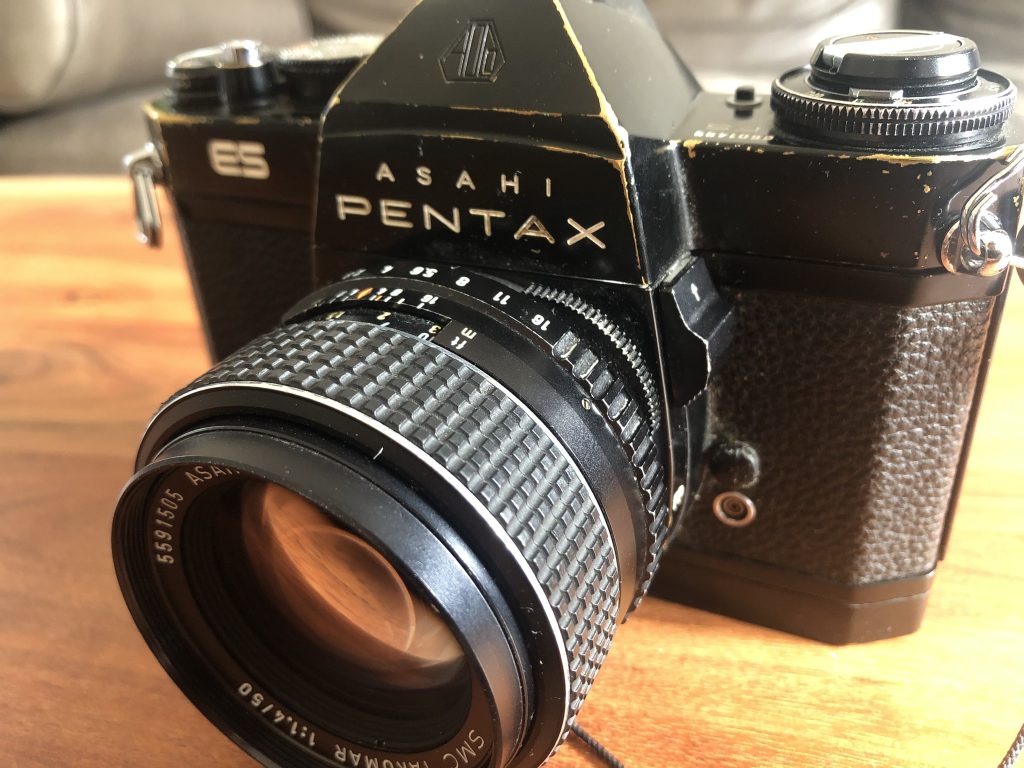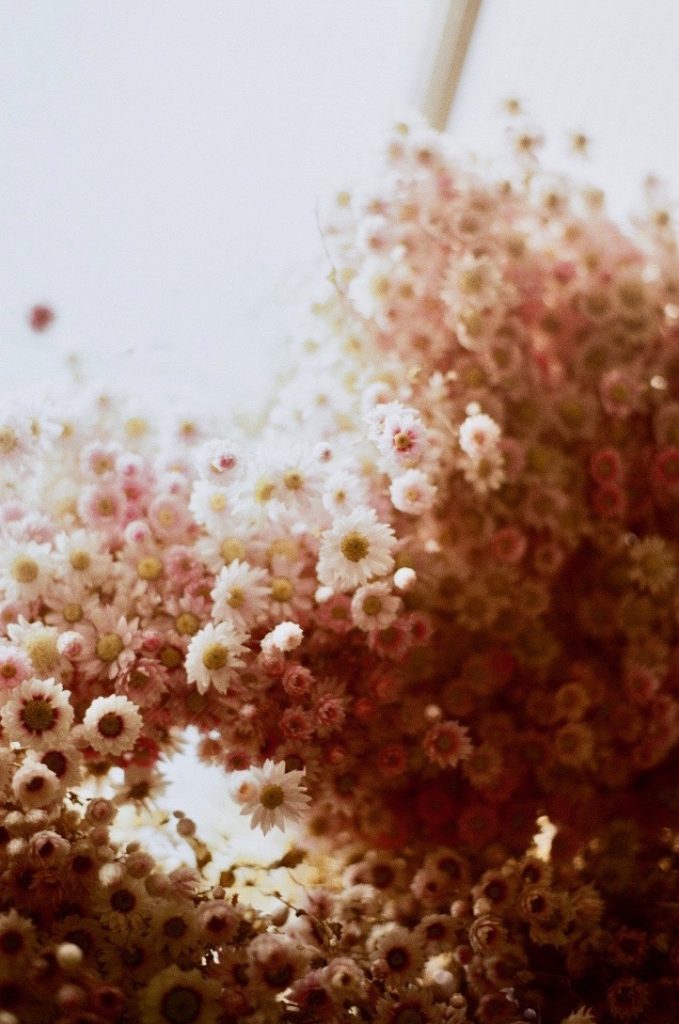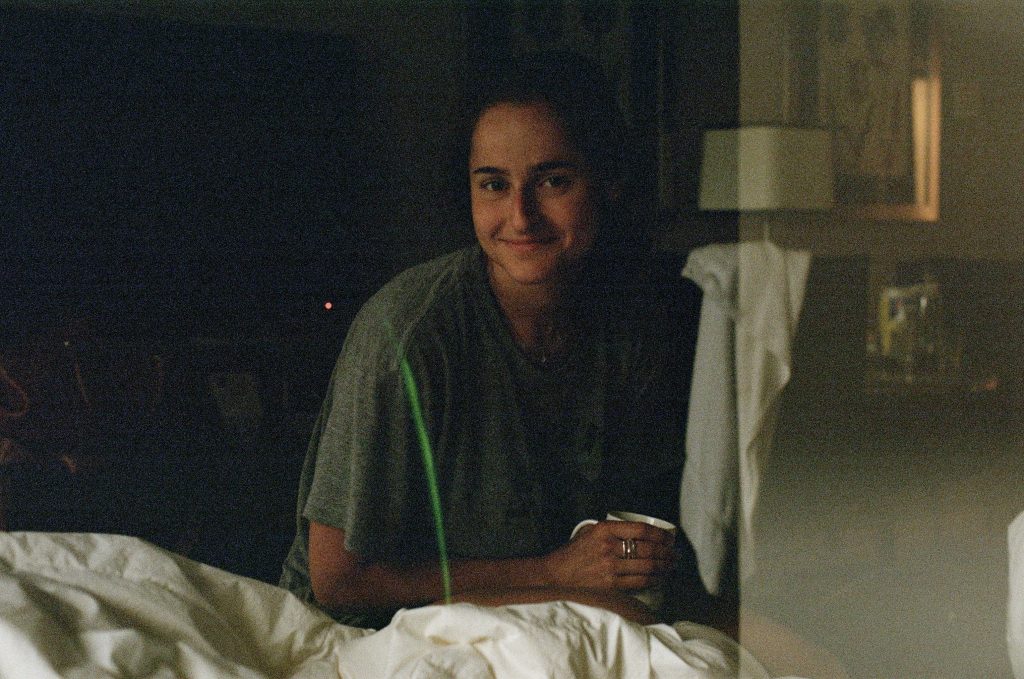Winged Words Series Story # 3
When I was 14, I visited my grandparents’ Seattle home to help my grandmother out after a hip replacement. I don’t remember much about the trip, only that I saw a guy walking up a very steep hill in the middle of the city wearing a raccoon tail as an accessory, and that American Costco sells churros. My only regret is that I was too young to try the city’s coffee.

Of the week we spent there, I remember one afternoon the most. Over lunch, it came out that my grandfather, who by then was living in long-term care a few states away, had left his camera behind. My grandmother produced a leather-bound 1973 Pentax Asahi ES, with a few perfectly maintained lenses for company. When I first tinkered with it, I accidentally destroyed a half-spent roll that had been forgotten inside. As the film crinkled in my hands, I experienced firsthand the dual charm and frustration of film photography. As much as film can preserve a moment eternally, those moments are as fragile as the vessel they’re imprinted on. In losing the last frames he took, he gave me one last lesson, and one I carried with me long after my blunder. That chunk of metal has been my constant companion ever since. I have the same debate every time I pack my bag: do I bring this chunky thing, or is my phone enough? The answer is almost always the former.

I’ve never been incredibly capable with a camera. That was never why I shot. What has always captured me is that film photography is a rare kind of delayed gratification that most millennials don’t indulge in. Sometimes, I push that limit for fun. Every year I’ve lived away, I’ve done the same thing; I take photos, but don’t develop them until I return home. Developing a year’s worth of memories all at once is to open a kind of time capsule. Some moments are missed simply because my skill has never been a match for dim lighting. Still, sometimes, the camera is out for a moment that would have otherwise been forgotten, or perhaps less precious had it been taken on a phone. There’s something about the finiteness of film, the grain, the fact that the moment you actually experienced is captured forever on a piece of plastic. We exist between moments, and the better that those moments are captured, the more grounded we feel. I know most of us feel transported when we look at old pictures; that is all the more real when the photo itself is an experience.

This past year has paused that kind of travel, for obvious reasons. Still, my partner and I had the opportunity to leave the city once this summer for work. We loaded up her small but mighty Mini Cooper, and began the long drive to Montreal. Even though two of my grandparents and my mum were born in that city, I don’t remember visiting it as a kid. Why not go back as an adult? Plus, I was working over Zoom the whole time. Was anyone really going to notice if my background changed? I don’t think they did. Of course, as always, my heavy film friend came along.
The only consistent trend in my photography is that I’m not often in-frame. Three days and half a roll into the trip, my partner asked to take a photo of me, for once. I had a cup of coffee in my hand, and no chance of escape. I told her to pay attention to the feeling of the shutter shudder in her hand when it fired. There is something addictive about the wind, click, and snap of creating something. She smiled, satisfied at the feeling of metal on metal. I adjusted some things for her to take a second shot, since my confidence in the first photo is always a little shaky.
This time, no matter how hard she pressed, it wouldn’t fire. No matter what I tried, the shutter stubbornly stayed in place. This time, I saved the half roll of film. At my regular shop, no one behind the desk was particularly optimistic, and I had a feeling that my loyal friend had taken its last shot. A few days ago, the shop called me to confirm their suspicions. Fixing my camera would mean destroying another one, and that just wouldn’t make any sense to do.

I realized something though, while driving myself home with my broken camera in the passenger seat. My grandfather bought his camera in Montreal in 1973, and took it with him everywhere he went until he could carry it no more. Until that point, many frames of me were taken, and I am sure that camera has been the lens through which he long watched me grow. My grandfather died almost a decade ago, and forgot me around the same time I took his camera as my own. It has since shared and captured more of my moments than any single person I know. Of the thousands of frames it has taken, perhaps a dozen have been of me.
I don’t believe in powers beyond this. There’s no heaven in Judaism for me to pine for, no spirit I’ve been trained to know or that I’ve found on my own. Still, if there were, I’d think this was something they’d have caused. Someone would have closed the lid of some celestial Steinway and told my grandfather to look down. “She’s in Montreal, David.” The first frame would have flashed before him. Only the normal signs of an aging shutter would show. Through the lens he sent, he would have seen me sitting on the edge of an unmade bed. The frame is out of focus, but it tells him all he needs to know. I am loved, and at peace. He can let me go.
